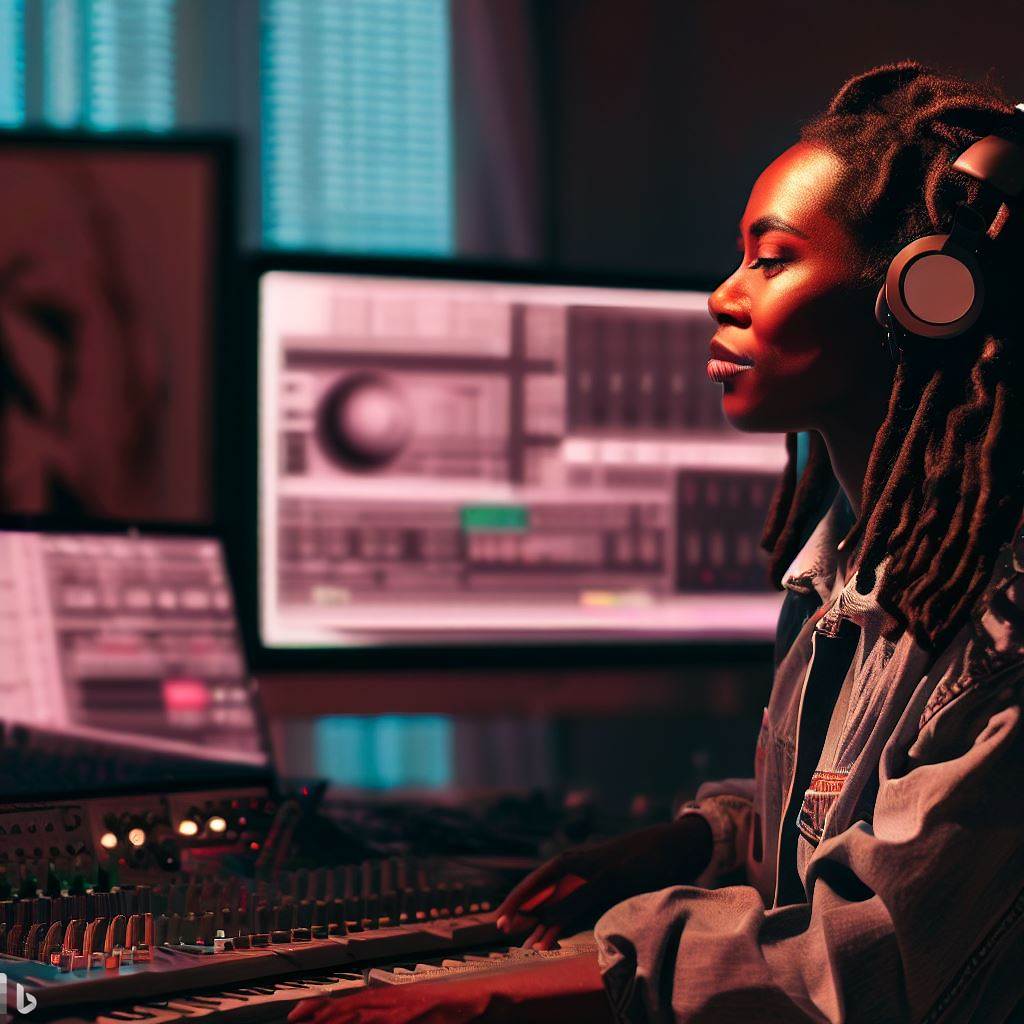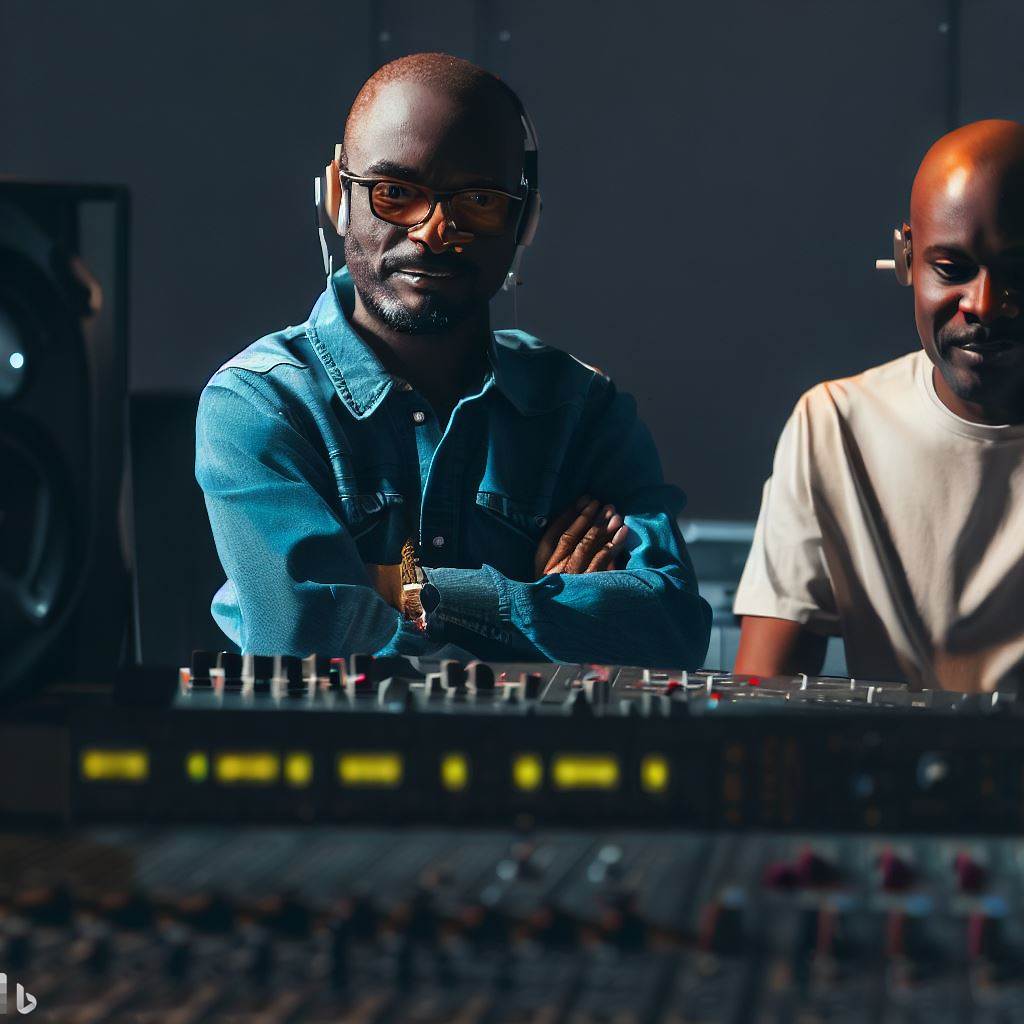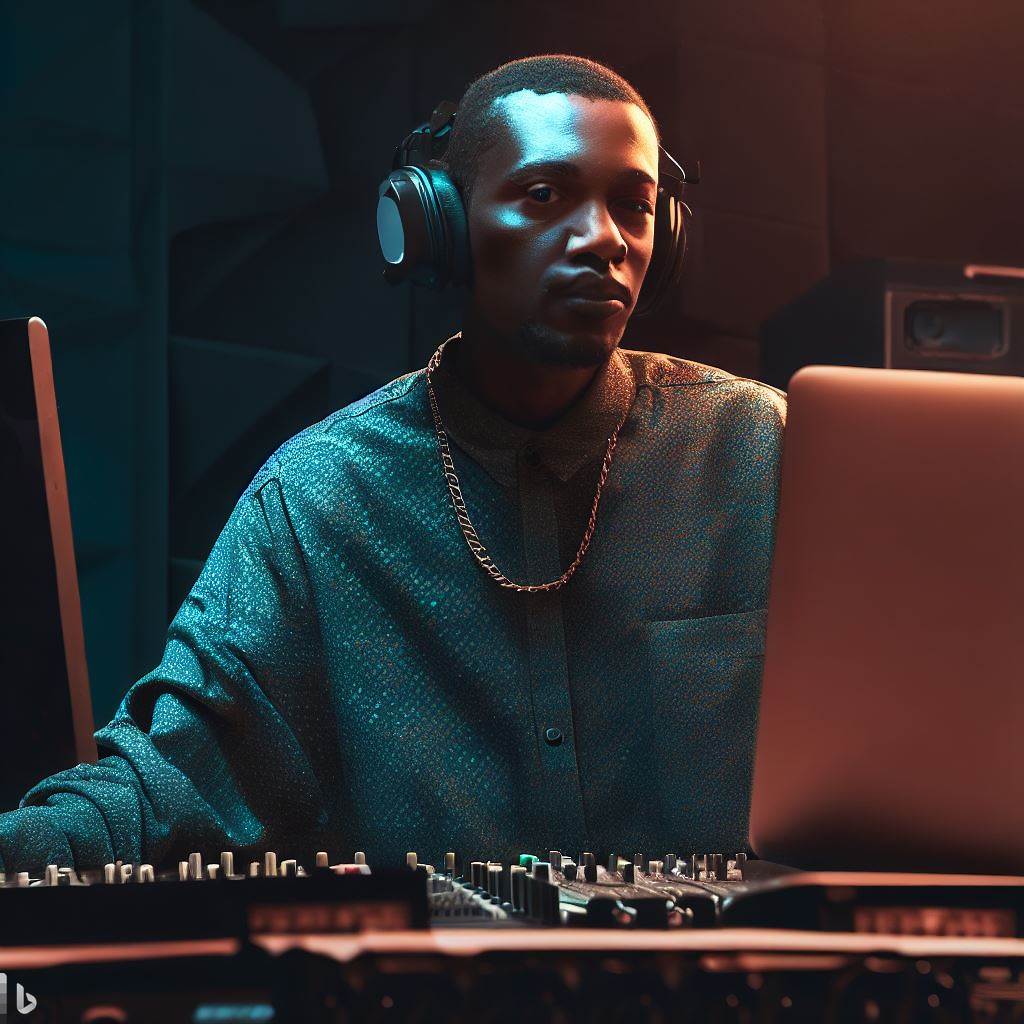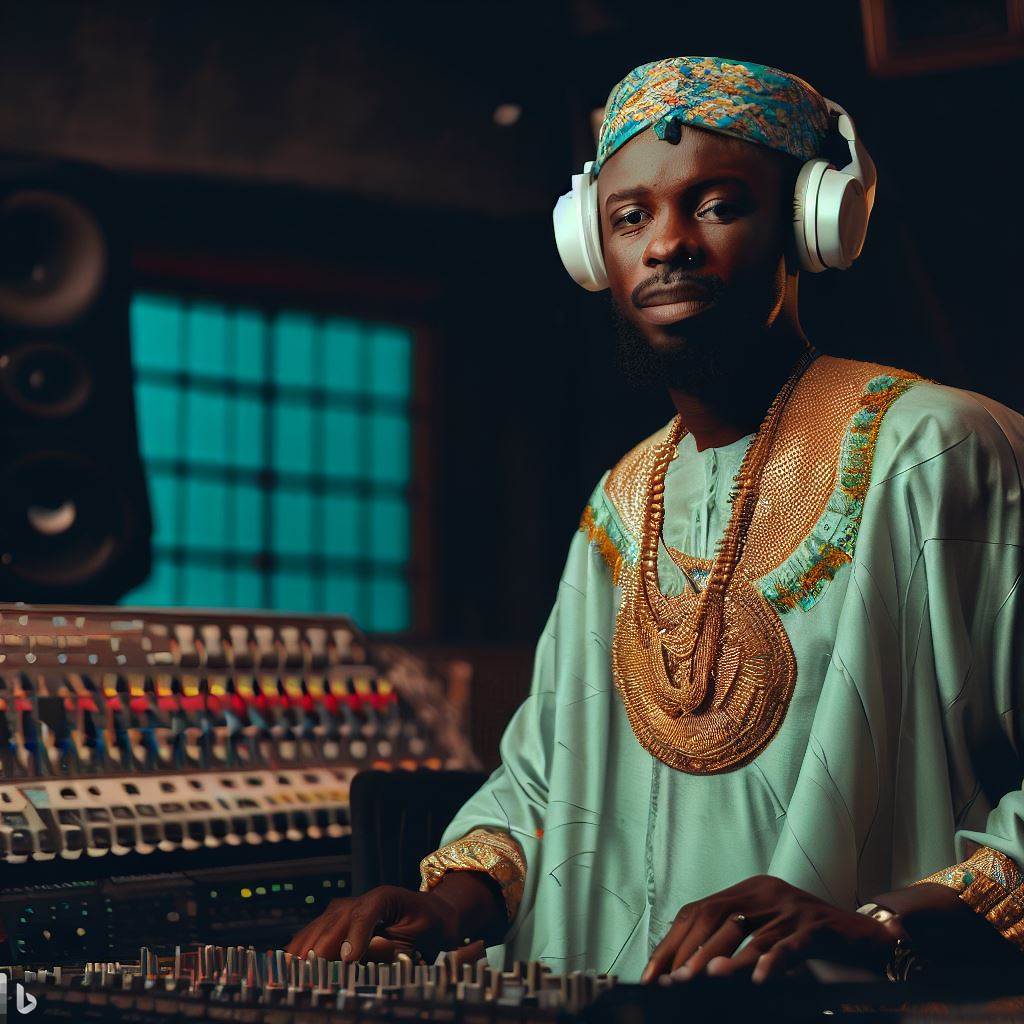Introduction
A. Nigerian Music Industry Overview
Nigeria boasts a vibrant music scene with global recognition. Afrobeats leads, but piracy challenges persist.
B. Significance of Legal Understanding
Grasping legalities is vital for musicians and producers to protect creative efforts and secure earnings.
C. Purpose of This Blog
Explore key legal aspects in Nigerian music production, empowering artists and producers for informed and successful careers.
Copyright Law in Nigerian Music Production
A. Explanation of Copyright and its relevance in music production
Copyright is a legal concept that grants exclusive rights to the creators of original artistic and intellectual works.
These rights allow creators to control the reproduction, distribution, and public performance of their works.
In music production, copyright ensures that producers have control over their compositions, recordings, and performances.
B. Copyright laws specific to Nigeria
1. Copyright Act of 1988
The Copyright Act of 1988 is the primary legislation governing copyright in Nigeria.
It provides a framework for the protection, administration, and enforcement of copyright in different creative industries, including music.
2. Amendments and updates
Over the years, there have been amendments and updates to the Copyright Act to address emerging challenges and align with international standards.
These changes ensure that copyright protection remains relevant in the rapidly evolving music industry.
C. Protected rights of music producers
1. Exclusive rights
Music producers have exclusive rights over their works, including the right to reproduce, distribute, and display their recordings.
They also have the right to publicly perform their works and create derivative works based on their original compositions.
2. Moral rights
Music producers possess moral rights: claiming authorship and recognition, besides exclusive rights, within their works.
This protects their reputation and ensures that their work is not falsely attributed to someone else.
D. Consequences of copyright infringement
Copyright infringement can have serious consequences for music producers in Nigeria.
1. Legal action and damages
If someone infringes on a music producer’s copyright, they can take legal action to seek damages and injunctions.
Courts may award monetary damages or order the infringing party to cease their infringing activities.
2. Loss of control and revenue
Copyright infringement can result in music producers losing control over their works and potential revenue.
Unauthorized use or distribution of their music can diminish their market value and limit their ability to monetize their creations.
3. Stifled creativity and innovation
When copyright infringement goes unchecked, it creates a culture that devalues originality and discourages creativity and innovation in music production.
This not only harms producers but also deprives society of diverse and unique musical expressions.
To thrive in the Nigerian music production industry, producers must fully understand and protect their rights under copyright law.
By doing so, they ensure that their creative works are respected and rewarded, fostering a healthy and vibrant music industry in Nigeria.
Read: The Role of Technology in Nigeria’s Music Production Scene
Music Licensing and Royalties
A. Defining Music Licensing
Music licensing involves granting legal permission to use copyrighted music for various purposes.
B. Types of Music Licenses
- Performance Licenses: Required for public music performances, including concerts, clubs, and radio broadcasts.
- Synchronization Licenses: Necessary for combining music with visual content like films, TV shows, and commercials.
- Mechanical Licenses: Issued for reproducing copyrighted music in formats like CDs, digital downloads, and streaming.
C. Royalties: Ensuring Fair Compensation
- Performance Royalties: Earned when music is performed publicly, collected by performance rights organizations (PROs) like COSON.
- Mechanical Royalties: Received from the sale or reproduction of copyrighted music, managed by the Copyright Society of Nigeria (COSON).
- Synch Royalties: Generated when music is synchronized with visuals, negotiated directly between copyright holders and users.
D. Collecting Societies: Facilitating Royalty Collection
Collecting societies play a pivotal role in managing and distributing royalties to creators and copyright holders.
- COSON (Copyright Society of Nigeria): Focuses on protecting mechanical and performing rights, safeguarding artists’ interests.
- PMAN (Performing Musicians Association of Nigeria): Represents performing artists, negotiating performance-related royalties.
- GODAP (Gospel Music Artists Association of Nigeria): Supports gospel artists in royalty negotiations and legal matters.
In a nutshell, understanding music licensing and royalties is crucial for Nigerian music producers and artists.
Different licenses grant permission for diverse usage scenarios, while royalties ensure creators are compensated fairly.
With the involvement of collecting societies, such as COSON and PMAN, the intricate process of royalty collection becomes more streamlined and efficient.
By comprehending these legal aspects, music professionals can navigate the industry with confidence and protect their artistic creations.
Read: The Impact of Nigerian Music Producers on Global Sounds
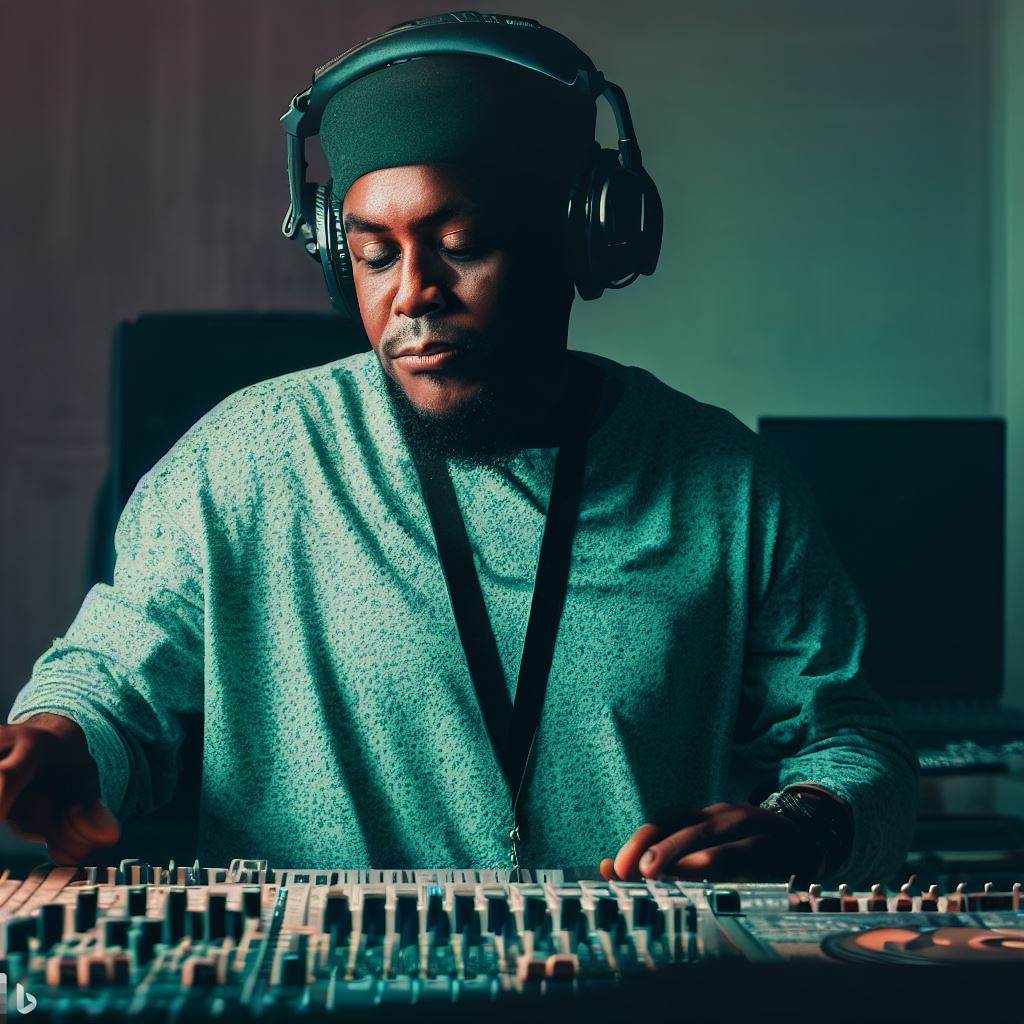
Uncover the Details: Overview of the Cruise Ship Entertainer Career in Nigeria
Contracts and Agreements in Music Production
A. Importance of contracts in the music industry
- Contracts play a vital role in protecting the rights and interests of all parties involved in music production.
- They establish clear guidelines and expectations, avoiding misunderstandings and potential legal disputes.
- Contracts provide legal protection in terms of ownership, royalties, and creative control over the music.
- They ensure fair compensation for all contributions, including producers, artists, and songwriters.
- Without contracts, the music industry would face chaos and confusion, impacting its sustainability and growth.
B. Types of contracts relevant to music production
- Producer agreements: These contracts outline the terms between the producer and the artist or record label.
- Collaboration agreements: These contracts govern the collaboration between different artists involved in a music project.
- Publishing agreements: These contracts cover the rights and royalties regarding the publishing and distribution of music.
C. Key elements in music production contracts
- Compensation and royalty split: Contracts should clearly specify how the revenue from music sales or streaming will be divided among the parties involved.
- Duration and territory: The contract should outline the agreed-upon duration of the agreement and the specific territories where the music will be marketed.
- Creative control and ownership rights: Contracts must establish who has the final say in artistic decisions, such as song selection, mixing, and artwork, as well as who owns the master recording.
In the end, contracts are essential in the music production industry to protect the rights, interests, and fair compensation of all parties involved.
Without contracts, the industry would face chaos and disputes that could hinder its growth and sustainability.
Read: Nigeria’s Influence on Global Costume Design Trends
Trademark and Branding Considerations
A. Overview of trademarks in the music industry
- Trademarks play a crucial role in the music industry by protecting unique brand identities.
- Artists, record labels, and music producers use trademarks to distinguish their products and services.
- Trademarks enable consumers to identify the source of the music and associate it with a particular brand.
B. Importance of protecting music brands
- Protecting music brands through trademark registration helps prevent unauthorized use and imitation.
- Trademark protection safeguards the reputation and value of music brands in the market.
- Registered trademarks allow music professionals to take legal actions against infringers.
C. Steps to trademark a music brand in Nigeria
- Conducting a trademark search: Before filing an application, it is essential to ensure the brand is distinct and available.
- Filing a trademark application: Once the search is complete, file an application with the Nigerian Trademarks Registry.
- Trademark registration process: The application undergoes examination, publication, and potential opposition before registration.
Overall, trademarks and branding are vital considerations for Nigerian music production. Protecting music brands through trademark registration is crucial in the industry.
By understanding the legal aspects and following the necessary steps, music professionals can safeguard their brand identities and market value.
Read: Earnings and Revenue: The Financial Side of Nigerian Music Production
Conclusion
Understanding the legal aspects of Nigerian music production is crucial for both creators and producers.
By having a clear knowledge of copyright laws, licensing, and agreements, individuals can protect their creations and avoid legal disputes.
Seeking legal advice is highly recommended for anyone venturing into the music production industry in Nigeria.
Experienced attorneys can provide guidance on contracts, intellectual property rights, and revenue sharing arrangements.
By proactively addressing legal matters, musicians and producers can concentrate on their creative process and focus on their careers.
Lastly, the Nigerian music industry is rapidly evolving, and staying informed about the legal landscape is essential for success.
Stay updated on new legislation and industry trends to ensure compliance and maximize opportunities.
Understanding the legal aspects of Nigerian music production is the foundation for a successful and sustainable career.

